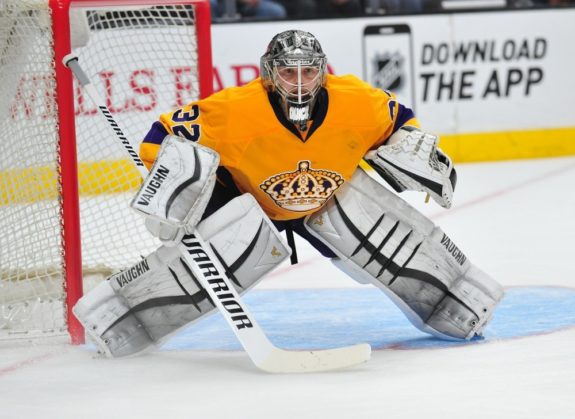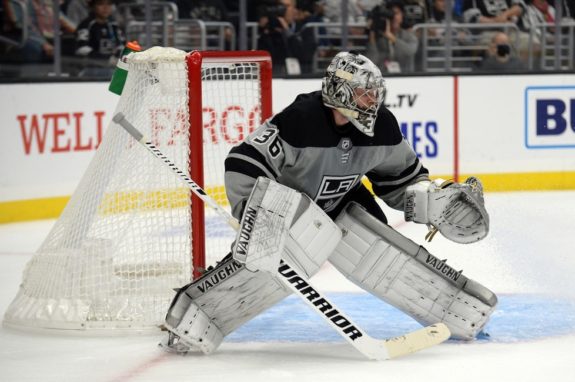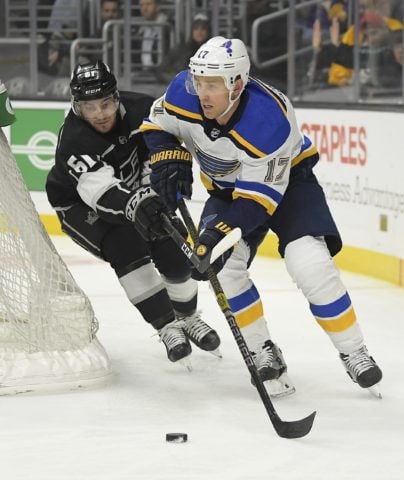Accountability, in the form of player buy-in, ranks at the top of the list of reasons for serious new growth for the Los Angeles Kings going into the second half of 2019-20. It has been mentioned by 12-year veteran defenseman Drew Doughty that the absence of guys like Matt Greene and Jarret Stoll had a negative effect on the team, especially in regard to player accountability, in that there wasn’t the same level of demand and expectation after the Kings moved on from Greene and Stoll. Also, the trade of Jake Muzzin left a void on the blue line, both in terms of presence and accountability of younger players.
With the departures of key players from the 2012 and 2014 Stanley Cup teams, the Kings need a change.

That change has started at the top with head coach Todd McLellan. Former captain, and veteran, Dustin Brown, has also mentioned that under McLellan, the level of expectation, demand, and, ultimately, player accountability, has been a constant this season, a difference from the past several seasons (from “New Kings coach Todd McLellan makes his message clear: ‘It can’t get casual here’,” LA Times, 09/16/2019). That type of change will go a long way in getting the Kings back to respectability, but it’s not the only necessary change.
Veteran Leadership Needed
Veteran players, including Doughty and Brown, need to step up their mentorship of younger players in an effort to grow as a team and, ultimately, win. Taking on more of a sense of pride in bringing along younger players and guiding them along, both in practice and in games, has become the responsibility of Doughty, Brown and current captain Anze Kopitar. This is similar to how veterans Greene, Stoll, Willie Mitchell, and Justin Williams mentored them earlier in their careers.
Another example of leadership in bringing along younger players is goaltender Jonathan Quick working with Jack Campbell, the No. 2 goalie in Los Angeles. Campbell, 27, signed a two-year, $3.3 million contract extension last offseason after ranking third in the NHL in save percentage last season. It is interesting to watch the wins and losses getting tighter this season as the two continue their supportive, competitive battles.

The aggressive style of Quick, which was a key reason for the Kings’ two Stanley Cup championships, is often in question during losses, especially lopsided defeats. In looking toward the future, it’s part of the normal process for Campbell to see more action. This will help with his development, and also provide rest between games for Quick, who has been a workhorse throughout his career.
The solid technical aspect of Campbell’s game is a bright spot. He played for the U.S. National Under-18 team, as well as in Canadian major junior with the Windsor Spitfires and Sault Ste. Marie Greyhounds. The Kings’ goaltending can be a positive growth factor in the second half of this season, as a healthy Quick can literally steal games. Meanwhile, Campbell is excellent in the second goaltender role, as the two exemplify accountability through supportive and competitive play. Yet their success in games will largely be dictated by the team’s play in the defensive zone.

Doughty remains the anchor of the defense, logging 26-plus minutes per game. Support from the rest of the team, including forwards, in the form of corner battles, clearing passes, and smart aggressive play execution, are also key factors for growth. Keep an eye on blueliners Sean Walker and Derek Forbort, as well as forward Kyle Clifford. All three will be key in solidifying what has been a shaky defensive group.
Kings’ 2020 Goal – Development of Younger Players
Having veteran players who have won Stanley Cups, like Kopitar, Brown, and Jeff Carter will help emphasize player accountability in younger players. Carter, who has always been highly regarded by other players, is finally back in stride, albeit older, having returned from a rather serious laceration that kept him out most of last season.
Also, with more ice time being given to the younger forwards, like Adrian Kempe and Alex Iafallo, improvements can be seen. However, they are measured against the mistakes the Kings make, both offensively and defensively. But it’s coming to the rink each day with the emphasis on and expectation of improvement that must drive the systems of McLellan and the Kings forward.

Here at the All-Star break, Kempe, Walker, and Michael Amadio are leading the Kings’ secondary scoring. All three are 25 or younger and come from slightly different hockey backgrounds. Kempe was playing in Sweden before signing with LA and gaining some American Hockey League experience with the Ontario Reign. Walker, a defensive bright spot, played college hockey at Bowling Green State University. Meanwhile, Amadio came up through more traditional Canadian junior hockey ranks with the North Bay Battalion of the Ontario Hockey League.

Sean Walker (AP Photo/Mark J. Terrill
Though the three have different backgrounds, their contributions are significant. While being assigned new responsibilities and more ice time, we are seeing more consistent production from all three. This is critical to the Kings’ continued growth moving forward this season. With time, it will be necessary for these players to fill veteran roles, with more consistent scoring, speed of play execution, and defensive responsibilities.
This aligns well with McLellan’s plan to further growth in Los Angeles this season, by creating a culture of pride in playing for the Kings franchise, with player buy-in, and accountability serving as the top priorities for 2019-20. The pieces are in place for growth, including the mentorship of younger players by proven veterans. That growth will go a long way in building towards the next wave of successful Kings teams. And it can start in the second half of 2019-20.